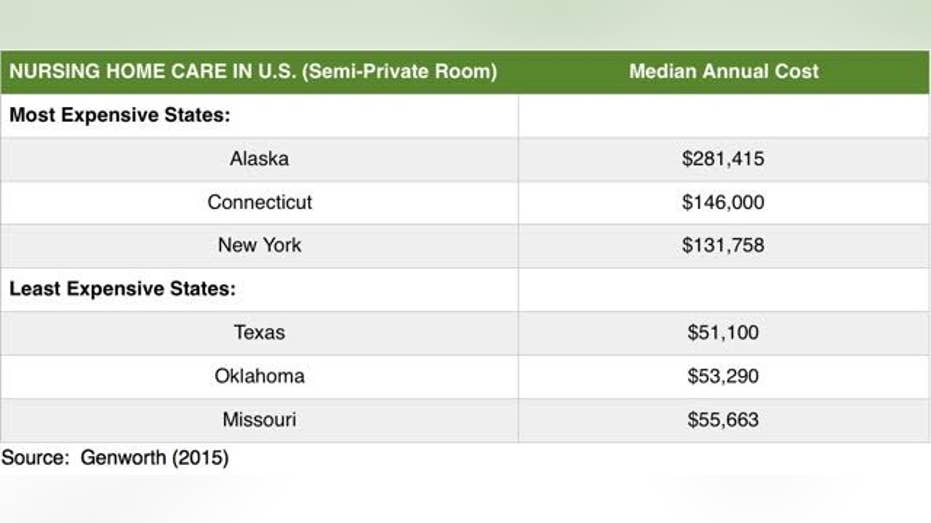Should Your Aging Parents Get Long-Term Care Insurance?

No one likes to talk about it but it is a reality for many families. An aging parent gets sick, loses the ability to take care of himself or herself and needs home care or nursing home care. While you may think this won’t happen to your family, it is estimated 70% of people over the age of 65 will need some sort of long-term care assistance.
Long-term care is expensive. It can eat up retirement savings and put an enormous financial strain on families. “Adult children are spending a lot of money because no one planned for long-term care costs for mom or dad and it’s turning out to be thousands of dollars,” says Katy Votava, founder of GoodCare, an independent healthcare consulting firm.
Cost of Long-Term Care
To get a sense of the cost, nursing home care for a semi-private room in the U.S. adds up to $80,300 a year or nearly $6,700 a month. For a private room, the price jumps to more than $91,000. Home health care is cheaper but still costs more than $3,800 a month. Prices also vary by state.

Paying for Long-Term Care
If your parents are in the highest-income bracket, they may be able to pay the costs of long-term care on their own. If they are in the lowest-income group, they can apply for Medicaid assistance to pick up the cost. It is the middle-income group that needs to decide whether buying long-term care insurance is the right choice and analysts say it is an individual decision. “For people who are averse to ending up on Medicaid, who are willing to accept the risk of a premium hike, then for those people, it may make sense to purchase insurance. But I absolutely wouldn't say that it is something that everyone should be buying,”says Anthony Webb, senior research economist at the Center for Retirement Research at Boston College.
Webb says one of the drawbacks to standalone long-term care insurance is the price. Insurers are raising premiums as they face higher costs and lower investment returns, making policies more expensive for buyers, with some policies topping $7000 a year. Webb also points out that nursing home stays are not very long—on average, under a year for men and just over a year for women—so the need for prolonged and costly coverage may not be justified. “The average duration of stay is shorter than previously thought and you’re relatively unlikely to face a six-figure bill,” he says.

More Options
As more consumers look for choices beyond standalone long-term care policies, insurers have introduced alternatives including hybrid policies. These policies can include coverage for long-term care and combine it with a life insurance benefit so your parent will have long-term care coverage and family members may also receive a death benefit. Policy terms vary. “People say with long-term care insurance, I’m going to pay a lot but I’m not going to get anything. With a life insurance rider, you get something either way which is appealing to people,” Votava says.
Regardless of what type of long-term care policy fits your needs,Votava has some suggestions before buying.
Tips for Buying Long-Term Care Insurance
- Make sure to get enough coverage by calculating daily nursing home costs in your area.
- Seek policies with inflation protection.
- Buy a policy with a three-year term. A longer term probably won’t be necessary.
- Pay attention to the elimination period or the time between when an illness begins and the first insurance payment is received. Typically, a shorter elimination period means the insurance payment will arrive sooner but expect a higher cost for the policy.
- Use an independent insurance broker to find the right policy. Brokers can often negotiate better terms with insurers.
Medicaid Safety Net
If your family’s plan is to seek the help of Medicaid, your parent must qualify for Medicaid which means meeting low asset requirements. Medicaid also has a look-back period of five years from the application date to search for any asset transfers. Any assets transferred or gifted to family members and others during that time may be subject to penalties. Therefore, relying on Medicaid may not be a quick process. In addition, choices for Medicaid recipients may be limited. Your loved one may not have an option when it comes to the location of a long-term care facility or the type of room.



















